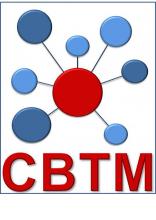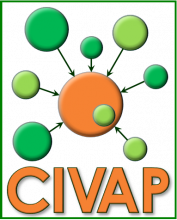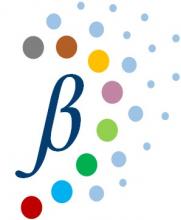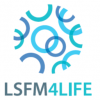The Cambridge Biorepository for Translational Medicine
The Cambridge Biorepository for Translational Medicine (CBTM) was founded by Kourosh Saeb-Parsy to provide infrastructure and unrivalled access to fresh human tissue to sustain prospective mutlidisciplinary research projects that are otherwise very difficult to conduct. CBTM currently supports a large number of innovative research projects focused on regenerative medicine, cancer, transplantation, developmental physiology, disease pathogenesis and transcriptomics. CBTM is a core facility accessible to all research groups on the Cambridge biomedical campus, as well as to external academic and commercial collaborators. To find out more and explore collaborations with CBTM, please visit the CBTM website.
The Cambridge In Vivo Assessment Platform
 The Cambridge In Vivo Assessment Platform (CIVAP) was founded by Kourosh Saeb-Parsy to provide infrastructure, expertise and resources to accelerate pre-clinical translation of laboratory human research in a range of disciplines including regenerative medicine and cancer. CIVAP is a core facility accessible to all research groups on the Cambridge biomedical campus, as well as to external academic and commercial collaborators. Its objective is to enable research groups to conduct high quality and pioneering in vivo studies rapidly, optimally and cost-effectively, with a particular emphasis on Replacement, Reduction and Refinements in experimental animal use. To find out more and explore collaborations with CIVAP, please visit the CIVAP website.
The Cambridge In Vivo Assessment Platform (CIVAP) was founded by Kourosh Saeb-Parsy to provide infrastructure, expertise and resources to accelerate pre-clinical translation of laboratory human research in a range of disciplines including regenerative medicine and cancer. CIVAP is a core facility accessible to all research groups on the Cambridge biomedical campus, as well as to external academic and commercial collaborators. Its objective is to enable research groups to conduct high quality and pioneering in vivo studies rapidly, optimally and cost-effectively, with a particular emphasis on Replacement, Reduction and Refinements in experimental animal use. To find out more and explore collaborations with CIVAP, please visit the CIVAP website.
The Mitochondrial Therapies Group
Kourosh Saeb-Parsy is a group leader in the Mitochondrial Therapies Group (MTG) which brings together chemists, biochemists and clinicians to enable rational design, synthesis and testing of novel diagnostic and therapeutic compounds that target mitochondria. Our aim is to use these compounds to understand and prevent common pathologies where mitochondrial dysfunction occurs such as ischaemia-reperfusion (IR) injury, cancer, diabetes and inflammatory disorders. Compounds that the MTG has developed have had notable success in limiting IR injury in in vivo models of heart attack, organ transplantation and stroke. Although we aim to understand the underlying pathology the MTG is focused on translational research that can bring novel therapies from bench to bedside in a timely fashion for disorders that affect our ageing populations. To find out more, please visit the MTG website.
The BETA-Protect Collaborative
 Kourosh Saeb-Parsy is the founder and Principal Investigator of the BETA-Protect Collaborative. The mission of the BETA-Protect collaboration is to eliminate rejection as a barrier to using regenerative cellular therapies for the treatment of type 1 diabetes. It provides unrivalled expertise and infrastructure to definitively determine how the immune system recognises cellular therapies for type 1 diabetes and to optimise strategies to prevent their rejection. The BETA-Protect Collaborative brings together leading experts from the UK in alloimmunity, immunotherapy and regenerative medicine that is essential to address questions that are fundamental to the clinical translation of cellular therapies for type I diabetes. To find out more, please visit the BETA-Protect website.
Kourosh Saeb-Parsy is the founder and Principal Investigator of the BETA-Protect Collaborative. The mission of the BETA-Protect collaboration is to eliminate rejection as a barrier to using regenerative cellular therapies for the treatment of type 1 diabetes. It provides unrivalled expertise and infrastructure to definitively determine how the immune system recognises cellular therapies for type 1 diabetes and to optimise strategies to prevent their rejection. The BETA-Protect Collaborative brings together leading experts from the UK in alloimmunity, immunotherapy and regenerative medicine that is essential to address questions that are fundamental to the clinical translation of cellular therapies for type I diabetes. To find out more, please visit the BETA-Protect website.
The LSFM4LIFE Project
Kourosh Saeb-Parsy is a co-investigator and work-package leader in the EU-funded LSFM4LIFE collaborative project. The aim of LSFM4LIFE is the isolation and therapeutic-scale manufacture of human pancreas organoids for the cellular therapy of type 1 diabetes. Pancreas organoids, which are grown from adult pancreas tissue, are a small in vitro version of the endocrine pancreas and represent a very promising approach to generate sufficient quantities of insulin-producing cells for the treatment of type 1 diabetes. LSFM4LIFE is a pan-European academic and commercial partnership with the necessary expertise to advance this technology from the laboratory to clinical trials. To find out more, please visit the LSFM4LIFE website.
